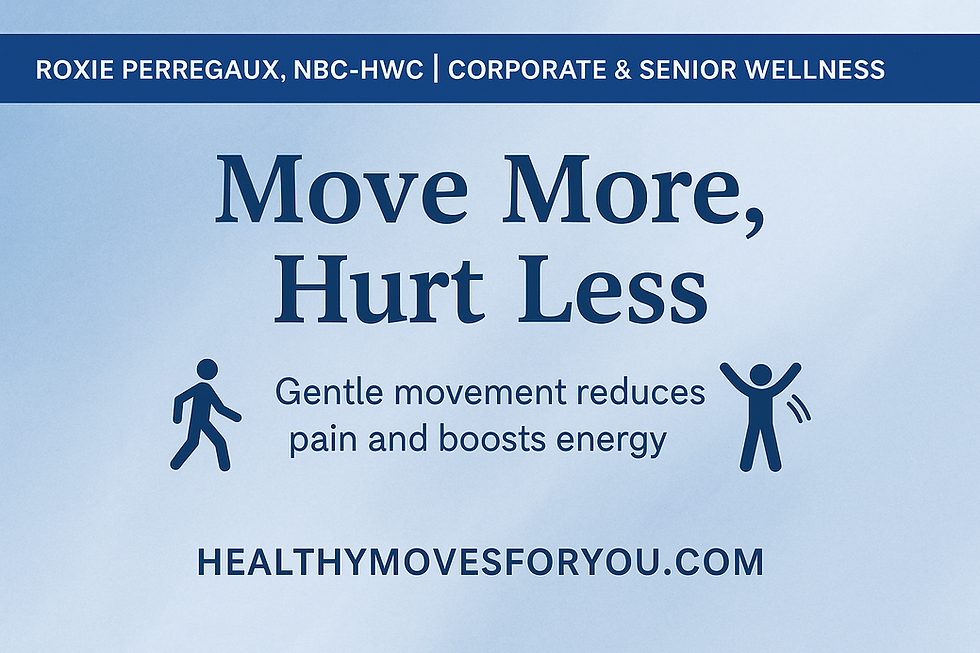The Importance of Hydration for Seniors: Simple Tips for Staying Hydrated
- Roxie Perregaux

- Mar 17, 2025
- 2 min read

As we age, maintaining proper hydration becomes more important than ever. Many seniors are at risk of dehydration, which can lead to a variety of health issues, including fatigue, dizziness, and even more serious complications. Unfortunately, dehydration often goes unnoticed because the body's thirst mechanism can weaken with age. In this post, I’ll explain why staying hydrated is crucial for seniors and offer simple tips to help ensure you’re drinking enough water every day.
Why Hydration Matters for Seniors
Dehydration can affect nearly every system in the body, from circulation to kidney function. Some of the key reasons why hydration is essential for seniors include:
Maintaining body temperature: Proper hydration helps regulate body temperature, especially in hot weather.
Supporting digestion and nutrient absorption: Drinking enough fluids ensures that the body can properly digest food and absorb nutrients.
Improving cognitive function: Dehydration can impair concentration and memory, which is particularly concerning for seniors.
Promoting healthy skin: Well-hydrated skin is less prone to dryness and irritation.
Practical Tips for Staying Hydrated
Drink Water Regularly: Aim for at least 8 cups of water a day, but the exact amount can vary depending on activity level, health conditions, and climate. If you have trouble remembering to drink, try setting a reminder on your phone.
Eat Water-Rich Foods: Incorporate fruits and vegetables with high water content into your diet. Watermelon, cucumbers, oranges, and strawberries are all excellent choices.
Add Flavor to Your Water: If plain water seems too boring, add natural flavors by infusing it with slices of lemon, lime, or herbs like mint. This can make drinking water more enjoyable.
Watch for Signs of Dehydration: Keep an eye out for signs of dehydration, such as dry mouth, dark-colored urine, or feeling lightheaded. If you notice any of these symptoms, increase your fluid intake and speak with your doctor if necessary.
Limit Caffeine and Alcohol: Both caffeine and alcohol can cause dehydration, so it’s best to drink them in moderation. Opt for water or herbal teas when you’re thirsty.
Conclusion: Hydration for Health
Staying hydrated is simple, yet so important for seniors. By making a conscious effort to drink enough water and incorporating water-rich foods into your diet, you can maintain better health, prevent dehydration, and feel more energized. Small changes today can lead to big benefits tomorrow!




Comments